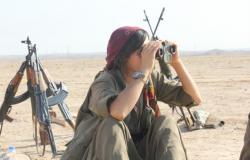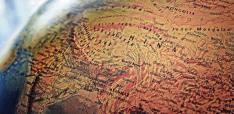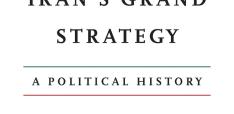Book Review - Frontline Turkey: The Conflict at the Heart of the Middle East

Frontline Turkey: The Conflict at the Heart of the Middle East by Ezgi Basaran. London: I.B. Tauris, 2017. 224 pp, £17.99 hardcover 9781784538415
The title of most intractable conflict in the Middle East has often been attributed to the Arab-Israeli dispute. However, this is a misattribution. Israel has peace treaties with two of its neighbours and a peace process, albeit stalled and under immense strain, with the Palestine Liberation Organization (PLO). The region’s real intractable conflict is that between Turkey and the Kurds where peace has been elusive since the birth of the modern Turkish republic in 1923.
A silver lining in the dark cloud of the anti-democratic and authoritarian tendencies of Turkey’s leader Recep Tayyip Erdogan and his ruling Justice and Development Party (AKP) was their apparent commitment to find a solution to the Kurdish question. Alas, this was just a reprieve mistaken for resolution. By 2015, the southeast of Turkey once again descended into violence resembling the war zone it was during the height of the Kurdish insurgency during the 1980s and 1990s. The question on the lips of many observers was, quite simply, “what went wrong?”
 Ezgi Basaran, Turkish journalist and newspaper editor of note and now Oxford scholar, has the answers. Frontline Turkey: The Conflict at the Heart of the Middle East, is a blow by blow account of the Turkish-Kurdish conflict from 1923 until the present day using an array of sources including personal interviews with Kurdish military commanders and civilian activists. There is a strong emphasis on the failed peace process of the last decade and its present-day consequences, both inside Turkey and its neighbours, especially Syria which is still experiencing one of the most devastating and catastrophic civil wars of our age.
Ezgi Basaran, Turkish journalist and newspaper editor of note and now Oxford scholar, has the answers. Frontline Turkey: The Conflict at the Heart of the Middle East, is a blow by blow account of the Turkish-Kurdish conflict from 1923 until the present day using an array of sources including personal interviews with Kurdish military commanders and civilian activists. There is a strong emphasis on the failed peace process of the last decade and its present-day consequences, both inside Turkey and its neighbours, especially Syria which is still experiencing one of the most devastating and catastrophic civil wars of our age.
For those unacquainted with the conflict, I would advise them to read the first chapter twice. Basaran does well to explain the historical dynamics of the conflict in a way which is readable and accessible. But, to her credit, she does not oversimplify. Basaran details how the Turkish state-building process led to the suppression of Kurdish nationalism during the 1920s and 1930s. Basran details the political and social context of the emergence of the Kurdistan Workers Party (PKK) and its founder and leader Abdullah Ocalan during the 1970s, as well as the organisation’s ideology, structure and relationship with the Turkish Left. Basaran contextualises the PKK’s launching of an armed struggle against the Turkish state during the 1980s, its spill over into neighbouring countries, the counterinsurgency methods of the Turkish state and the beginnings of the so-called peace process with the rise of the AKP and Prime Minister and later President Erdogan.
While charting the rise and fall of Turkish-Kurdish peace talks, which mainly took place between 2009 and 2011 (the Oslo talks) and 2012-2015, Basaran offers clues as to why they would eventually fail. She provides an enlightening analysis of the dynamics of the Kurdish movement and its triangular structure consisting of Abdullah Ocalan with a mythical and almost god-like aura at the top, while below stand the military commanders based in the Kandil Mountain stronghold of the PKK on one side, and the peaceful Kurdish participatory political parties on the other. With Ocalan imprisoned in solitary confinement since 1999 and Turkish intelligence monitoring his every twitch, a significant speed bump in the road to peace can be discerned.
The Kurdish organisational structure was only one part of the problem. The others, as Basran explains, include miscommunication between Turk and Kurd, where gestures were mistaken for insults. For example, as talks were taking shape in 2009, a confidence building measure was the return and surrender of exiled PKK fighters. When they crossed the border, they were greeted with a hero’s welcome by local Kurds to the chagrin of watching Turks who felt slighted. Another factor for failure was the fall-out between the Turkish AKP government and the Gulen movement. Fellow travellers of the AKP government until their rift, the Gulen movement, later blamed for the 2016 attempted coup, had different ideas to the government about how to solve the Kurdish issue and leaked some details of the negotiations to a shocked public.
Another factor which Basaran highlights was the decaying situation in Syria, especially the ISIS siege of Kobane. Many Kurds were angered at Turkey’s slow response to the humanitarian crisis while their Kurdish brethren faced imminent slaughter. Others blamed Turkey’s Syria policies for the rise of ISIS. Later, when the PKK’s affiliates in Syria got the upper hand, the balance of power between the PKK, especially its militant youth branch, and the Turkish state altered and some declared autonomy in Kurdish population centres and erected barricades. The Turkish state suppressed this rebellion with overwhelming force leading to hundreds of deaths and hundreds of thousands of people internally displaced.
However, the biggest reason for the breakdown was the political ambitions of Recep Tayyip Erdogan. What becomes clear in Chapter six was that he hoped the Kurdish peace process would win him additional support to transform Turkey’s frail parliamentary democracy into a Presidential system and guarantee his place in history as the man who transformed Turkey. Advocating the peace process had once earned Erdogan political dividends, but not after 2014 and the rise of the left-wing People’s Democratic Party (HDP) and its charismatic leader Selahattin Demirtas, whose popularity threatened to take votes away from Erdogan. Soon Erdogan distanced himself from the peace process as well as AKP officials who had been instrumental in facilitating talks.
The failure of the peace process means that Turkey currently finds itself in an internal struggle against the PKK while also fighting the PKK’s external allies in Syria. The Turkish government is additionally confronting both the Assad regime and ISIS, all the while dealing with an unprecedented terrorist threat, with hundreds killed in a spate of bombings in 2015 and 2016. The extent of internal discord and divisions together with Turkey’s unprecedented external enemies and democratic deficits, leads Basaran to wonder if Turkey is on the road to becoming a failed state. Whether or not this is the case, failure to solve the Kurdish issue will only leave Turkey weaker. Intractable conflict or not, time is running out.
Dr Simon A. Waldman is a Mercator-IPC fellow at the Istanbul Policy Center and a visiting research fellow at King's College London. He is the co-author of the recently published, “The New Turkey and Its Discontents” (Oxford University Press: 2017). Follow him on Twitter @simonwaldman1
Image credit: Kurdishstruggle via Flickr (CC BY 2.0)


